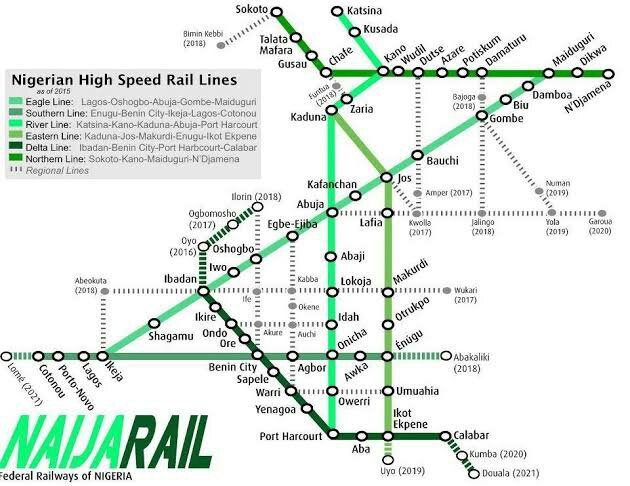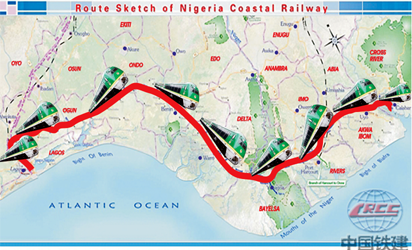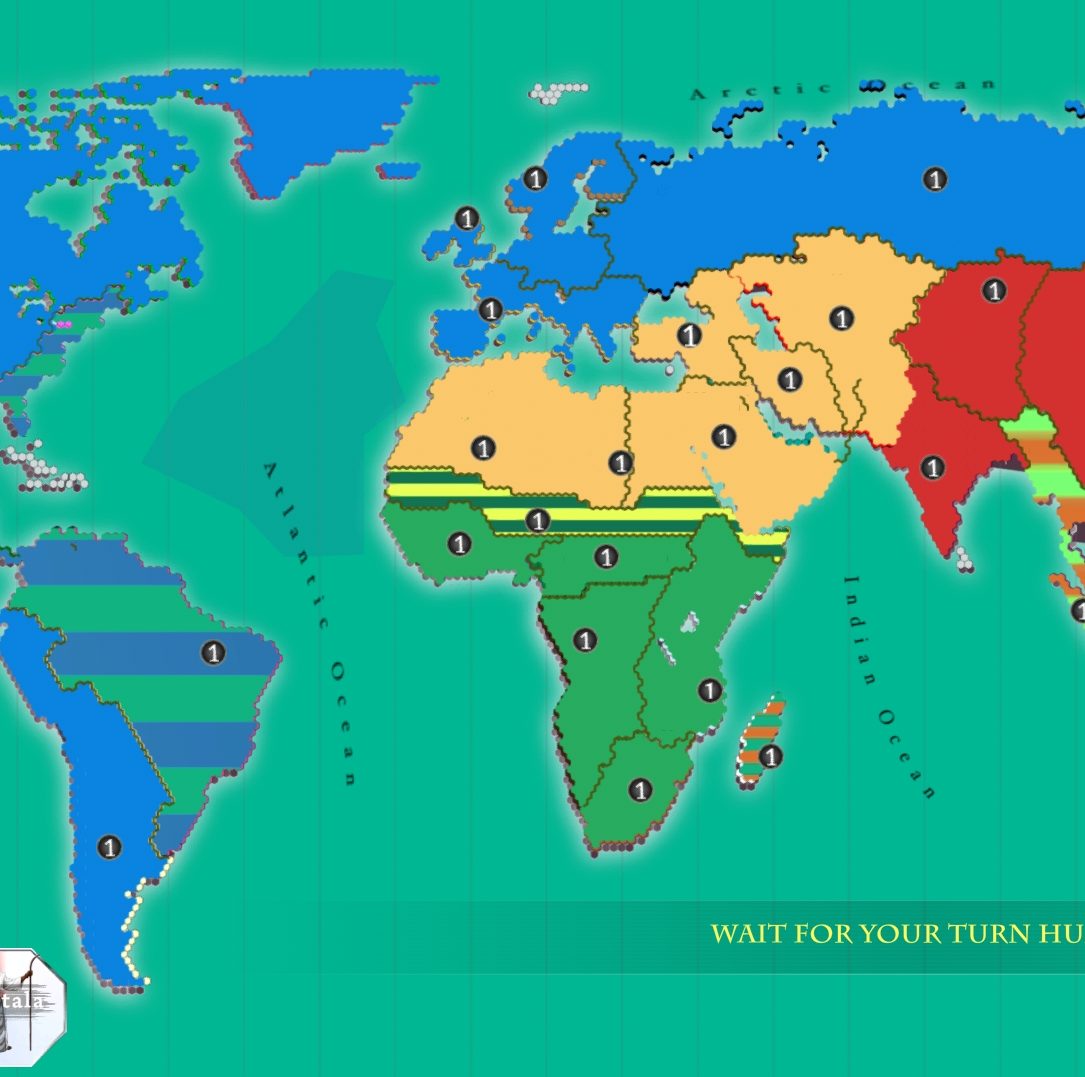
I appeal to those with genuine Original African interests to stand up to defend our economic interests.
The single most important economic infrastructural development in the last 100yrs is the Lagos-Calabar railway line and is being silently sabotaged.
Railways are a major source of employment in UK, US and the rest of the industrialized world, and actually stimulates industrialization.
https://www.railwaygazette.com/news/infrastructure/single-view/view/chinese-sign-us12bn-contract-to-build-nigerian-coastal-railway.html
In 2014, the last administration signed the $12bn Lagos-Calabar railway project to be financed and built by the Chinese.
This was China’s single largest foreign investment. At present Nigeria owns $3b out of its $22b foreign debt to China and despite its cost, it is a project that will pay for itself.
Recently, the Buhari government has scrapped the most important project ever in the South and re-awarded it to General Electric USA that neither has the financial and technical ability and political will to complete.
https://www.vanguardngr.com/2018/05/american-based-company-set-invest-10bn-coastal-rail-line/
I opposed Buhari presidency in 2011 based on the premonition that he would strike a fatal blow to Southern strategic economic interests – destablize and devalue our foreign exchange, sabotage the Lagos-Calabar railway project and the Shagamu mixed steel plant. I wasn’t wrong!
These are the launch pads to the industrialization of Southern Nigeria that would not only directly provide millions of jobs, but also stimulate the manufacturing sector.
The Shagamu Mixed steel plant is supposed to supply the proposed manufacturing center in Lekki, Lagos, and with the railway the steel plant, it will be able to work at optimum capacity.
Let it be known that it takes less than 15yrs to become fully industrialized once a nation builds an iron and steel complex and railways.
The US railroads boom of the early 1800s transformed the US economy, the late 1800s British development of Japan iron and steel complex and railways transformed Japan, the 1968 development of iron and steel transformed South Korea.
https://www.thecable.ng/kpmg-nigerias-high-speed-rail-world-class
I call on the Yoruba leadership, Afenifere, the Southbelt leadership to rise and query why the most important economic project has been sabotaged.
It is commendable that the Southbelt alliance has been able to unify our political aspirations around restructuring, while there are efforts towards cultural unity, however the economic front is the most important and meaningful to the common man. The political cliche that it’s all about the economy is a truism.
The key questions to be asked are, for what reasons the Lagos-Calabar was switched from the Chinese government backed CCRC, known to finance and build railways across Africa, South America and Asia, to the private owned General Electric that can’t raise the money and has not built similar projects.
The government gave a flimsy excuse that the Chinese couldn’t raise the cash, but it is public knowledge that it just gave Africa another $60bn in addition to a previous $60bn three years ago that have yielded economic liberating infrastructure across Africa.
The body language of this government that it wanted to derail the Chinese project has been obvious since its inception.
First, in February 2016 Amaechi made statements in his reported spat with Kemi Adeosun, when he ordered down finance ministry officials from the plane taking them to China over the already signed but now reviewed contract.
https://www.tori.ng/news/20230/amaechi-in-verbal-showdown-with-minister-of-financ.html
https://allafrica.com/stories/201602030158.html
Second, the removal of the right of way funds for the Lagos-Calabar railway line from the 2016 budget and it’s reallocation to Northwest project.
We should request to see the details of the contract with the Chinese and the new one signed with the Americans. I believe that the Americans are only playing geopolitics to sabotage Chinas single largest foreign investment at the cost of depriving Yorubaland.
Now, we must examine the contract to make sure that in the event that GE can’t raise the funds or technical ability, what are the termination requirements?

How long do we have to wait and at what cost will the breach of contract, otherwise we could be entangled in the unfulfilled contract for the new few decades. If this happens Yorubaland will lose its spot as the most prosperous land in Black Africa to East Africa and elsewhere.
While on the issue of railways, we should also query Fashola and Amaechi over the Lagos and Port Harcourt Metrolines which have cost double the time and money than those of Addis Ababa and Nairobi built by the same Chinese company and of similar distances.
It is believed that the current anti-China rhetoric trending across Africa is part of the China-USA Cold War that has resulted in the regime change of many leaders that have taken Chinese economic liberating infrastructure development.
In Mexico, the government was pressured by the West to cancel their Chinese built railways.
https://www.bbc.com/news/business-29948331.
In Malaysia, a new government was brought to power on US inspired corruption propaganda like Buhari and he immediately set out to suspend all Chinese projects.
Uhuru Kenyatta of Kenya and the Ethiopia government have stayed the course and will leave Southern Nigeria behind, if we don’t stand up to fight for our economic interests.
Also, while Buhari might give every excuse ranging from not wanting to expose Nigeria too much to China or that China doesn’t have the money, but we should ask him why is he leaving the Daura to Niger and other Northern lines to the Chinese that he knows will complete them, while leaving Southbelt railway to a company with no previous history of raising such funds or building a railway line of that magnitude.
Now, we call on the Yoruba and Southbelt leadership to stand up for Original economic interests.







